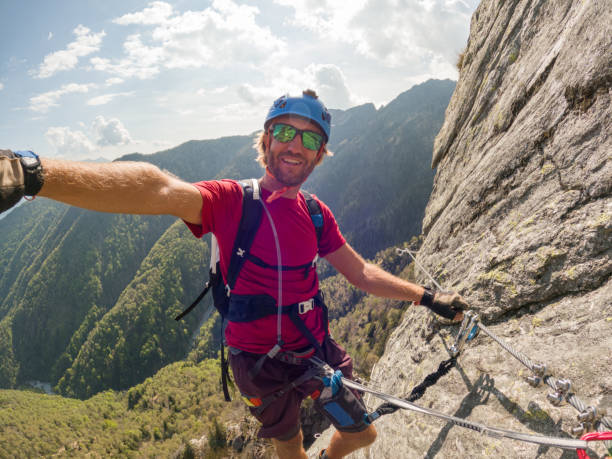Rock climbing isn’t quite as mainstream as running or cycling, and that’s understandable. It’s quite a dangerous exercise, even when done indoors. When it’s done outdoors, it can even be fatal.
But it’s actually offered in more than 200 high schools in the US, despite the inherent risks. And an increasing number of gyms, including high-end gyms such as Equinox, also offer rock climbing facilities. It’s estimated that more than 10 million Americans tried out rock climbing in 2020. And it was even part of the 2020 Tokyo Olympics.
Many reasons account for this. Part of it is the sheer fun of climbing high up, while those with a fear of heights have a way of fighting their fear. In addition, it offers several notable health benefits:
Strength and Cardio Workout
In general, you can do cardiovascular workouts on some days, and then do strength training on other days. But with rock climbing, you’re actually combining both. It elevates the heart rate and develops your stamina, and it’s said that rock climbing is like running at a pace of 8 to 11 miles per hour.
It also helps build muscle. Obviously, you’re going to focus a lot on upper body strength, as rock climbing involves plenty of instances when you have to pull yourself up. Meanwhile, your legs and core muscles work to provide you with balance.
More specifically, the activity works a lot of muscles. These include your abs, delts, obliques, biceps, traps, quads, lats, and calves. It also strengthens your grip by working your forearm muscles.
Weight Loss
It also keeps the weight down—a chubby rock climber is probably as uncommon as a chubby runner. Engage in rock climbing long enough, and you can eventually burn off the fat.
If you weigh 155 pounds, you’ll burn off close to 600 calories per hour when you’re rappelling. And if you take an hour for just the ascent, you’ll burn off a whopping 818 calories for that hour.
That means it will be much easier for you to burn off 500 more calories than you consume. Do this consistently each day, and you can lose a pound or two each week.
Improved Flexibility
The rock-climbing exercise motivates you to boost the range of your motion. You need flexibility for rock climbing, as you will often have to extend your arms and legs to reach the handholds and footholds. And when these holds aren’t within easy reach, you might have to leap to get there.
That means you will need to add a lot of stretching to your routine, especially before you climb. This improves your range of motion, plus it boosts blood circulation.
Mental Strength
Determining and navigating the right routes to get to the top is a problem that you have to solve. And to do that, you have to take into account several factors. These include the sizes, shapes, and placement of the holds, and your own abilities including your reach, strength, and current energy levels.
Stress Reduction
A lot has been said about how stress can lead to more dangerous health issues. And rock climbing can help alleviate that stress. A lot of the time, you can’t think of anything else but the tasks you’re currently facing, as you try to get from one hold to another. There’s no time to think about your problems with work and the issues concerning your personal life.
And once you reach the top, you get this exhilarating feeling that’s hard to duplicate. This is especially true when you’re outdoors and you earn the magnificent view. But even indoors, the view from the top can really put a smile on anyone’s face!
